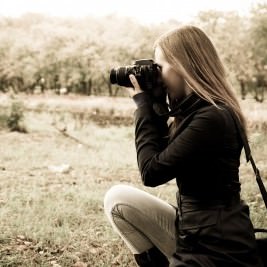 It’s not all constant in photography. There are times when most of the photographs you take are good, and that brings you satisfaction and confidence to keep going. There are also times when it seems like nothing you try comes out like it should, you feel like you’re stuck or even fear that you might have lost your talent. I believe that’s a time for asking yourself some questions, so I made a list of 5 essential ones. The answers you give yourself to these questions should help you improve the next time you go out shooting.
It’s not all constant in photography. There are times when most of the photographs you take are good, and that brings you satisfaction and confidence to keep going. There are also times when it seems like nothing you try comes out like it should, you feel like you’re stuck or even fear that you might have lost your talent. I believe that’s a time for asking yourself some questions, so I made a list of 5 essential ones. The answers you give yourself to these questions should help you improve the next time you go out shooting.
1. Where is the light coming from?
It’s easy to get caught up in camera settings like ISO, shutter speed and aperture and forget about the most fundamental thing in photography: light. Whatever your subject is, before you snap away, make sure to observe the light conditions. You have to be able to tell where the light is coming from so that you can adjust yourself or the subject to get the best out of the situation. You should also be aware of how hard or soft it is, and how long you have before it changes.
2. Why am I shooting this?
This is probably the toughest question to ask, but I didn’t want to get right to it. Before you push that button, this is the one thing you should have on your mind. There might not always be a clear answer, sometimes you just have a gut feeling that it’s going to be a great photo. For the rest of the times however, if you can’t come up with a decent answer, you’re probably wasting camera life, time, and energy and so on.
3. Am I in the right spot?
You might have already determined that you have a good subject in front of the camera and you might have figured out how to use the light. The next thing you should ask yourself is if you’re using the best angle. A bad composition will most likely ruin the chances for a good image, even if the lighting is dramatic and easy on the eyes.
4. What’s the atmosphere in the scene?
This is a question you need to ask yourself particularly when photographing something that’s not directed in any way. You have to be tuned in to the mood and the atmosphere of the scene. Of course, as an artist you have the freedom to give your photos whatever mood you want, but in order to that you still need to have and clear view of what’s going on. This is particularly important if your approach is a documentary or photo-journalistic one.
5. How do my favorite photographers work?
Having mentors is pretty important in any art form. We all have at least one or two photographers whose work we greatly admire, but that shouldn’t be enough. In order to evolve and get as close as possible to their level, you need to have a clear understanding of their working methods. How to use light, color, framing and mood are all important questions to ask yourself, but you should also be asking them about the work of others that you most admire.
Also Read: 8 TIPS MOST PROFESSIONALS WISH THEY HAD LEARNED EARLIER
Recommended Reading:
- 2013 Photographer's Market: The Most Trusted Guide to Selling Your Photography
- How to Create Stunning Digital Photography
- Best Business Practices for Photographers
- The Fast Track Photographer Business Plan: Build a Successful Photography Venture from the Ground Up
- Group Portrait Photography Handbook
- 500 Poses for Photographing Women
- The Best of Family Portrait Photography: Professional Techniques and Images
- 500 Poses for Photographing Group Portraits
- Selling Your Photography: How to Make Money in New and Traditional Markets
- Starting Your Career as a Freelance Photographer
- Photographer's Survival Manual: A Legal Guide for Artists in the Digital Age
- Legal Handbook for Photographers: The Rights and Liabilities of Making Images
- Taking Stock: Make money in microstock creating photos that sell
- Going Pro: How to Make the Leap from Aspiring to Professional Photographer
